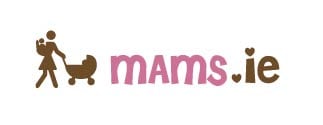Home › Forums › Pregnancy, Mums2Be, Birth, New Parents › Tips from the experts for National Breastfeeding Week
- This topic has 0 replies, 1 voice, and was last updated 11 years, 8 months ago by
Anonymous.
-
AuthorPosts
-
July 31, 2012 at 7:24 pm #14848
Anonymous
InactiveHere are some tips & advice we have been asked to pass on, from Touchstone Breastfeeding to celebrate "World Breastfeeding Week", 1-7 August
According to experts worldwide, breastfeeding not only reduces your baby’s risk of illness and obesity but your own risk of breast and ovarian cancer, and it is also much better for the environment. It is therefore no surprise that there is a week dedicated to highlighting the benefits of breastfeeding.
To celebrate World Breastfeeding Week, which runs from 1 – 7 August, experts at Touchstone Breastfeeding in Blackrock Hall Primary Care Centre (near Mahon Point) in Cork, have put together some helpful tips and advice to educate and inform expecting and new mothers. They believe that most women given time, support and the correct information can breastfeed successfully as it is a skill and an art that you and your baby need to acquire.
Tips for Breastfeeding:
• Try to breastfeed within the first hour or so of giving birth.
• Keep your baby with you as much as possible for the first week or so to bond.
• Breastfeed exclusively for at least six months.
• Appropriate complementary feeding should be gradually added at six months.
Signs that your baby is positioned well:
• Your baby’s chin, chest and knees face your body.
• Your baby’s mouth is open wide as in a yawn.
• Your baby’s tongue is over his/her lower gum.
• Your baby’s lips curl out like the lips of a fish.
• Your baby’s chin firmly touches your breast.
• Your baby’s nose and cheeks may lightly touch your breast.
• You hear or see your baby swallow when (s)he breastfeeds.
• Your nipples may look longer right after you breastfeed, but they should not be flattened or creased.
• If you feel pain, it should only be at the start of a feeding.
Reasons you might need to speak with a breastfeeding specialist:
• You want to learn as much as you can about breastfeeding.
• You had a hard time nursing a baby in the past.
• You are expecting more than one baby.
• You are expecting a sick baby.
• You know your baby will be early.
• You have had breast surgery and wonder if it will affect your breastfeeding.
• You think your breasts or nipples look off or are very different from each other.
• You worry that something about your health might make it difficult to breastfeed.
• You are diabetic and would like to breastfeed.
• You are having a hard time with breastfeeding.
• Your breasts or nipples hurt.
• Your baby is not gaining weight very well.
• You are worried about how your baby acts during or after feeding.
• You are worried that you might have too much or too little milk.
• You want to know how to keep a plentiful supply of milk.
• You and/or your baby are put into hospital during the time you should be nursing.
• Your baby has tongue tie or gut issues.
• You have insufficient glandular tissue.
• You want to know how to continue breastfeeding after you return to work.
• You want to know when and how to start feeding other foods to your baby.Commenting on World Breastfeeding Week, Geraldine Cahill IBCLC, Lactation Consultant at Touchstone Breastfeeding, said, “Becoming a new parent is a very special time and you will want to do what is best for your baby. Making the decision to breastfeed is a very important one and can mean better health for you both now and in the future.”
-
AuthorPosts
- You must be logged in to reply to this topic.

